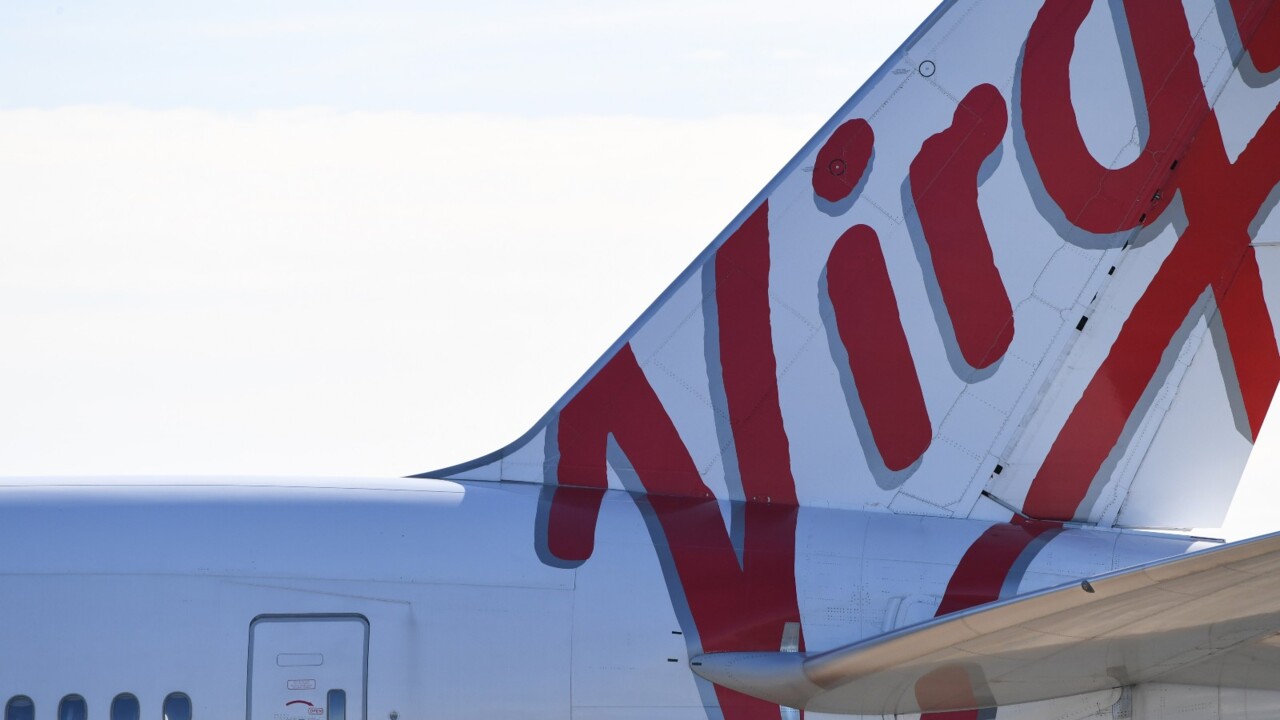How Bain Capital bought Virgin Australia for free
Virgin Australia’s private equity owner Bain Capital has repaid itself the entire $731m it paid in equity to take over the now-profitable airline – just three years after taking control.

Virgin Australia’s private equity owner Bain Capital will pay itself a capital return worth the entire $731m it paid in cash for the nation’s second-biggest airline, less than three years after grabbing control, according to an email sighted by The Australian.
Bain Capital paid $3.5bn including debt for Virgin in 2020 when the Covid lockdowns pushed the already debt-laden airline into administration.
At the time, many wondered if the US giant had bitten off more than it could chew with the airline purchase, but according to one senior staffer, Bain’s chairman, Stephen Pagliuca, declared, “I don’t think I’ve ever been more excited about an investment in my life.”
No wonder. Bain now stands to make an on-paper small fortune when it floats on the Australian Securities Exchange for what the market expects will be more than $3bn.
At the time it emerged from administration in 2020 it had an implied value of about $1bn based on the stakes held by Virgin Group (5 per cent) and the Queensland government (2-3 per cent).
The Boston-based Mr Pagliuca is a co-owner of the Boston Celtics, was a short-listed bidder for Chelsea Football Club, and even emerged as a potential candidate to buy Manchester United Football Club, although he was unsuccessful in the latter two.
In Virgin, he has certainly found success. Apart from Bain being able to repay itself its entire equity outlay just three years after buying the company.
In an email to staff this week, Virgin chairman Ryan Cotton said the airline is in “good shape” and that planning for the initial public offering is “well advanced.” It’s believed the airline is targeting an IPO in the second half of the year.
“We are in advanced stages of a separate return of capital to shareholders, which should finalise over the next few days,” Mr Cotton said in his email.

The Australian understands this to be a repayment of the full equity amount Bain put in at the time of the purchase, with Virgin Group and QIC also to receive their share of the capital returns.
Bain will likely retain a stake of between 50-60 per cent in the company post the initial public offering (IPO), which is being underwritten by Goldman Sachs, UBS and Barrenjoey.
Virgin chief executive Jayne Hrdlicka and her top team had completed an international roadshow to promote the $3bn share raising, but have delayed the domestic investor meetings due to the tragic death of Ms Hrdlicka’s husband from cancer.
In a separate email to staff prepared earlier, Ms Hrdlicka acknowledged their hard work and said it would be rewarded through a bonus.
“Following the email from Ryan earlier today, I am delighted, on behalf of the ELT, to confirm that we will be paying full profit share bonuses this year to all eligible team members in recognition of the fantastic transformation progress and growth we have delivered together as one team over the last 12 months,” Ms Hrdlicka wrote.
Frontline staff and executives will receive a bonus of 4 per cent of their salary, and other staff will receive a bonus in line with the rest of the team.
In his email to staff, Mr Cotton said the company is now in “good shape.”
“This is largely thanks to the transformational investments made while still early in the pandemic, the strategic choices we have made together, the commitment our teams have shown, and the tremendous efforts our people have made across our special business,” Mr Cotton wrote. “This is not to say the work is done. We still have significant transformation to deliver, but the foundations and performance of our business are now solid.”

A few months ago, Virgin announced its highest profit margins since 2007, pulling in estimated earnings of about $125m from first-half unaudited revenue of $2.5bn, and it is likely that its full year earnings for the year ended June 30, 2023 will be even stronger.
Bigger rival Qantas has also bounced back strongly after several years of Covid-19-related losses. It delivered a record $1.43bn half-year profit.
The fact Virgin and Qantas have made such sharp returns to profitability shows just how dramatic the post-pandemic travel boom has been for airlines.
International borders slammed shut in 2020, and in Australia airlines had the added complexity of interstate crossings also being regularly banned throughout the height of the pandemic.
Now, once-cooped up Australians are desperate to travel and airfares are at near record highs with planes at close to record loads, despite ongoing issues with high inflation and the rising cost of living.
Airfares from Australia to Europe for a summer holiday have risen 50 per cent on last year, according to recent data by travel search engine Kayak.
This is not just an Australia-based phenomenon. The Financial Times recently published a report that said airfares on the world’s 600 most popular routes rose 27.4 per cent in February, which was the fifteenth consecutive month of double-digit growth.







To join the conversation, please log in. Don't have an account? Register
Join the conversation, you are commenting as Logout